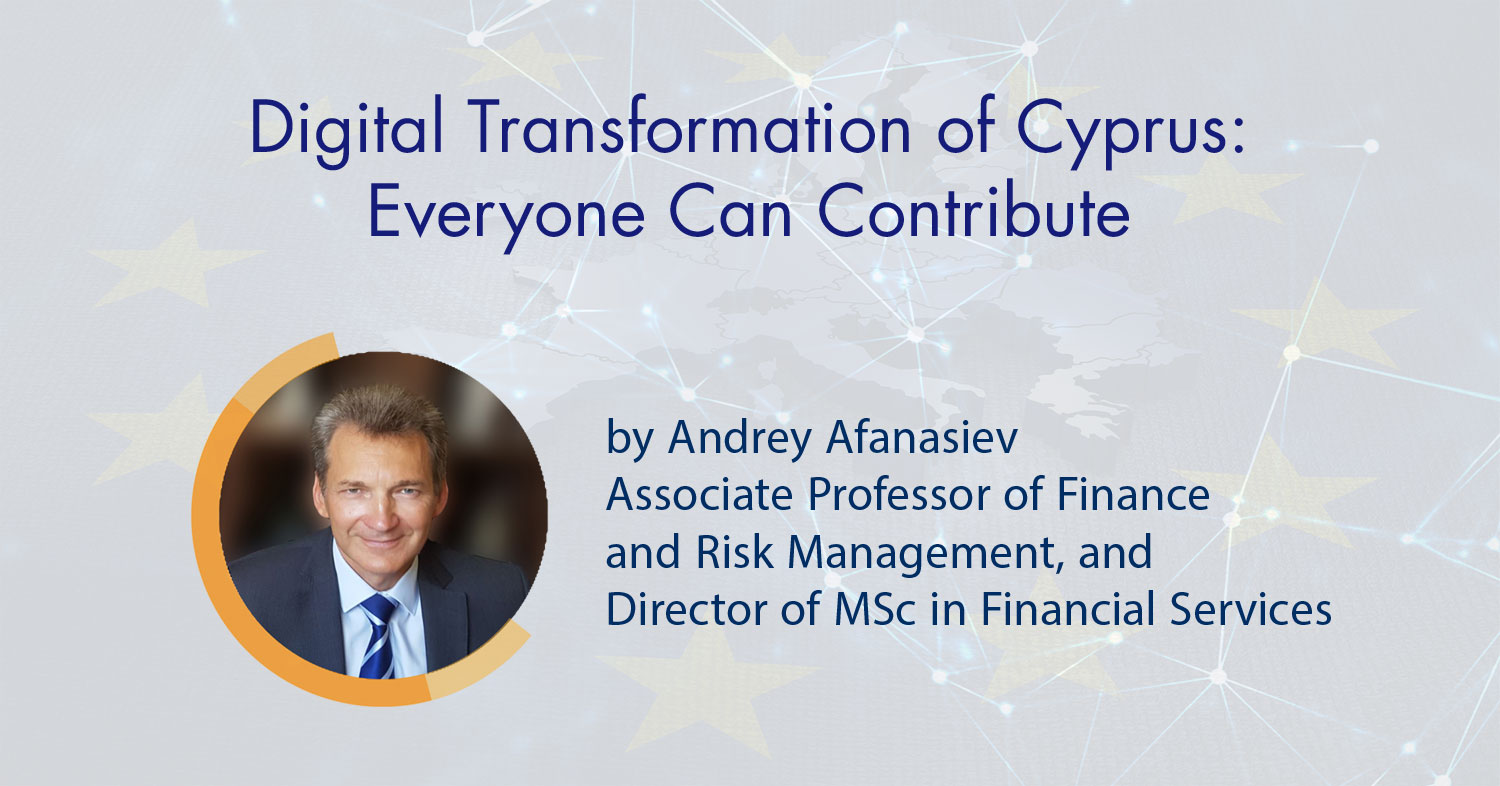In 2021 the European Commission defined the digital transformation of the economy and society as a strategic priority for the EU development by 2030. Europe aims to empower businesses and improve the quality of people’s life by implementing new innovative technologies.
The process of the digital transformation is coordinated at the EU level and mainly performed at the country level. The progress is monitored by means of the Digital Economy and Society Index (DESI). Cyprus ranked 21st among 27 EU Member States in the 2021 DESI. The country improved its performance in comparison with the 24th DESI rank last year. But there is still a lot that can be done on the island for its digital transformation.
The Digital Compass proposed by the European Commission sets out targets for the digital evolution of Europe in four dimensions: digital skills, digital infrastructures, digitalization of business, digitalization of government. The building of digital infrastructures and development of the digital government is conducted by a limited number of specialized companies and the Government.
Meanwhile, the enhancement of digital skills and digital modernizing of businesses requires everyone’s involvement.
The Cyprus economy is based on services, such as tourism and food services, trade services, financial services, professional services, public administration, and other services. For this type of economy, the professional skills of individuals, including digital skills, are especially important. Some years ago, sending SMS was considered an advanced skill. But digital proficiency standards are growing tremendously. According to the Digital Compass, the number of ICT specialists in the EU should reach at least 20 million by 2030, compared to 8.4 million in 2020.
With respect to the digital transformation of business, the Electricity Authority of Cyprus gives a prime example. EAC has established a wide range of digital channels for providing meter readings: SMS; popular messengers (Viber, WhatsApp, Telegram, and Signal); e-mail; website and the EAC mobile application. The EAC advancement makes visible the digital future, in which the premises meters will provide data directly to EAC using technologies of the Internet of Things without human involvement.
All kinds of businesses have space for digital transformation. Let’s take as an example such basic business as Water Sports. Even this business might be subject to the digital transformation: digital marketing in social networks would increase the number of customers; flying drones as well as underwater drones and cameras, in conjunction with a watercraft equipped with internet access would offer customers a unique opportunity to take digital images of their most exciting and memorable moments and to share them with friends in real-time. Moreover, simple digital cooperation of the Water Sports business with the nearest café would ensure that a cup of coffee will be waiting for you when you return.
The Digital Age has begun. Only the active involvement of everyone in the digital transformation would greatly contribute to a human-centric digital society in Europe and Cyprus. Currently, both the basic digital skills indicators and the share of ICT specialists in the workforce in Cyprus are well below the EU averages.
Educational organizations in Cyprus, provide numerous short-term training courses and academic programs in digital skills. Notably, my own institution, the Cyprus International Institute of Management (CIIM) offers two such academic programmes, the MSc in Business Intelligence & Data Analytics, and the MSc in Applied Information Technologies. Their aim is to upskill and reskill individuals with a quantitative background in a broad spectrum of information technologies and their applications to accelerate the digital transformation of organizations and businesses. In addition, CIIM’s Executive Education offers variety of short term courses in programming and a variety of digital skills and information technologies.
About the Author
Dr Andrey Afanasiev
Associate Professor of Finance and Risk Management, the Director of the MSc in Financial Services
CIIM – Cyprus International Institute of Management


